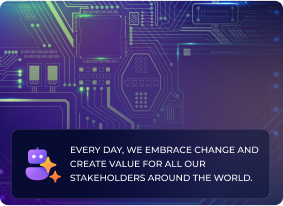In tech, there’s constant tension between specializing deeply and staying adaptable. Go too deep in one niche, and you risk becoming irrelevant when the market shifts. Stay too broad, and you may never stand out.
So how do you specialize strategically—building deep skills in a focus area without boxing yourself into a corner?
Here’s how smart engineers are doing just that.
Why Specialization Matters
Specialists are often:
- Paid more
- Trusted with complex, high-impact projects
- More attractive to niche startups or mature teams needing specific expertise
Whether it’s DevOps, data engineering, mobile development, or AI/ML, having a strong niche can fast-track your growth.
But specialization should be intentional, not accidental. Many engineers fall into specialties based on team needs or legacy projects. That can trap them in tech that’s fading or too narrow.
Choosing Your Niche: Passion Meets Market Demand
To choose the right specialization:
- Identify what excites you technically (Do you enjoy performance optimization? System design? Creative UIs?).
- Cross-check it with job market trends (What skills are companies hiring for now—and likely in the next 5 years?).
- Consider your strengths. Specializing should amplify what you’re already good at.
Example: You love automation and infrastructure? DevOps or Platform Engineering might be for you. Fascinated by how users interact with tech? Explore UX Engineering or Front-End Architecture.
Become a T-Shaped Engineer
The goal is to be T-shaped:
- The vertical bar = deep expertise in one area.
- The horizontal bar = broad understanding across adjacent areas.
For instance, a back-end specialist might understand basic front-end dev, security, DevOps, and databases. This lets you collaborate effectively, pivot if needed, and avoid being siloed.
Keep Learning Around Your Core
Even as you go deep:
- Explore side projects outside your niche.
- Join cross-functional efforts (e.g., Devs helping with design sprints or QA processes).
- Follow trends outside your core stack.
- Contribute to open-source in a different domain.
This prevents stagnation and helps you stay employable when technologies shift.
Real-World Example: Staying Versatile as a Specialist
Meet Anika, a data engineer who specialized in Spark and Hadoop. As the industry moved toward cloud-native solutions, she upskilled in Snowflake and Python-based pipelines, and picked up basic Kubernetes for deployment. Her deep data expertise remained relevant, and her broadened knowledge made her more valuable in cross-functional teams.
Final Thought: Specialize Broadly
It sounds contradictory—but in practice, it’s what modern tech careers demand. Go deep, but stay open. Specialize, but don’t fossilize.

